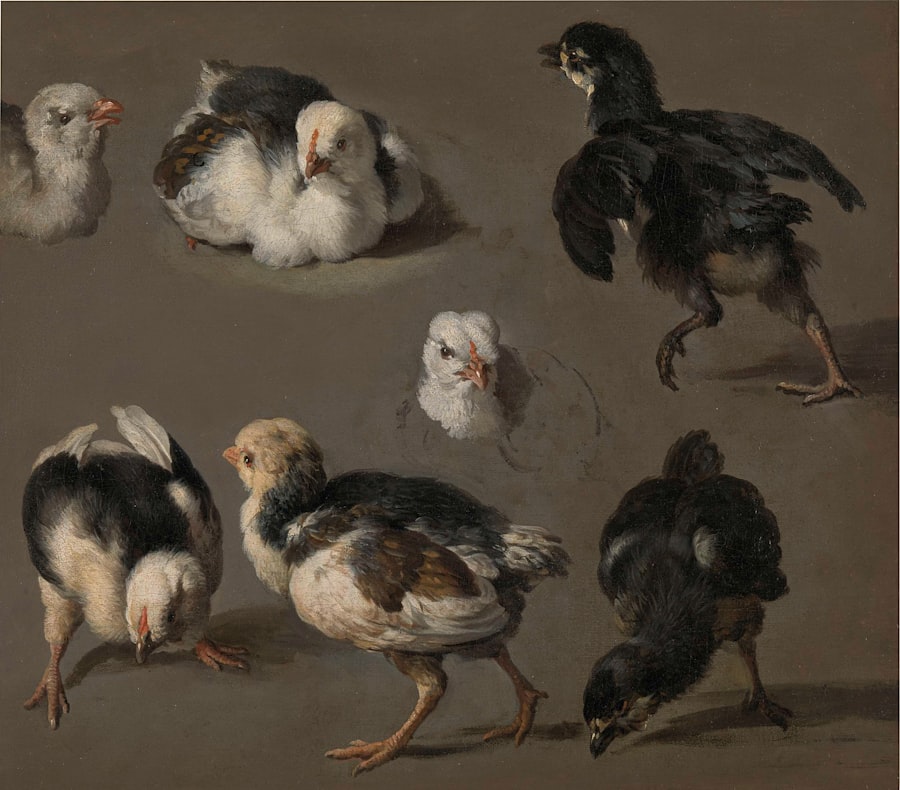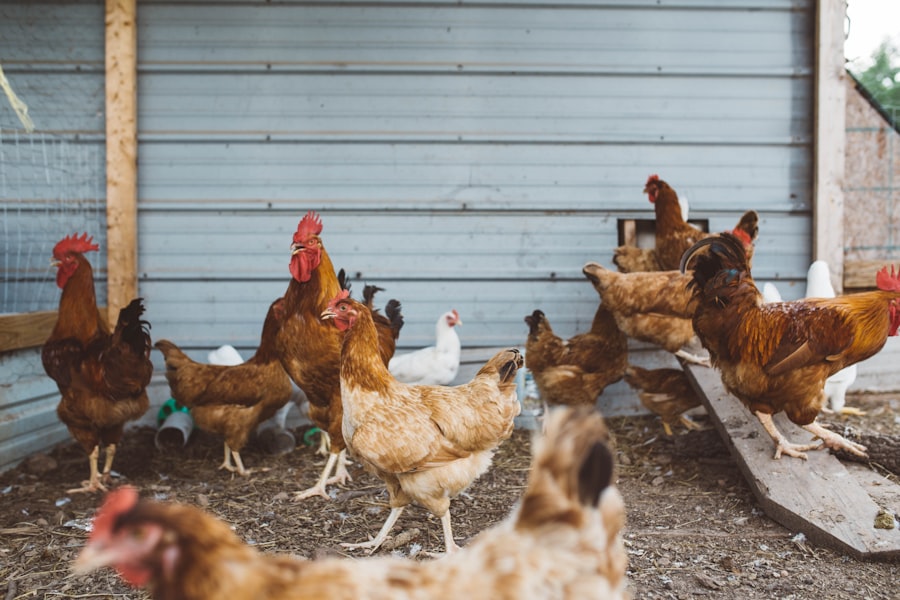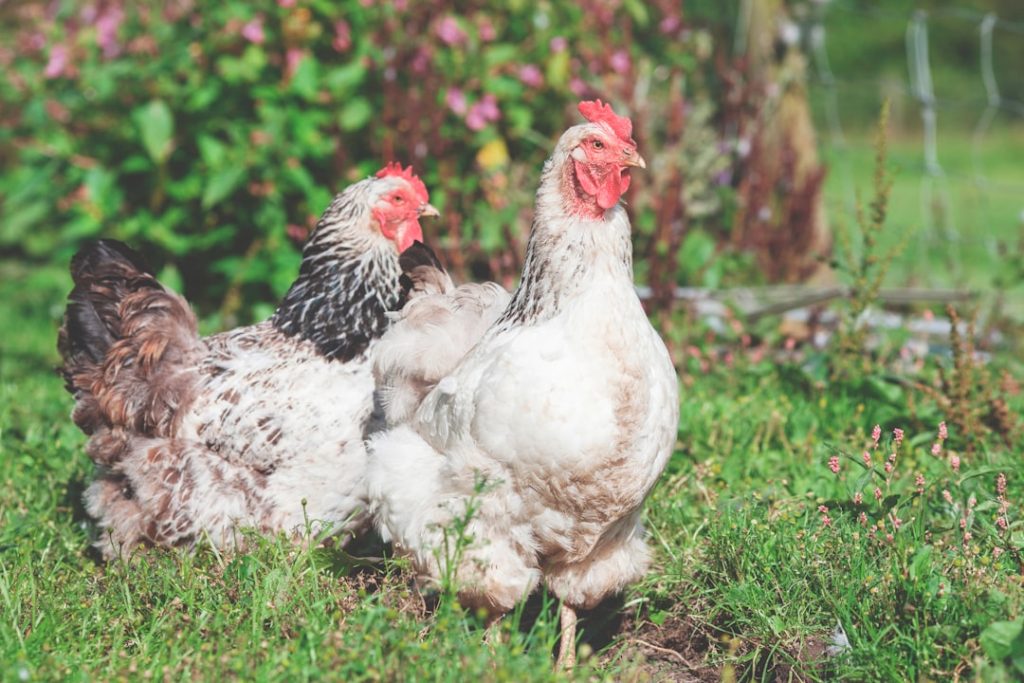Rare breed chickens are distinctive and valuable poultry varieties that differ significantly from commercial breeds commonly found in supermarkets. These chickens often belong to heritage breeds with centuries-old lineages and possess unique characteristics and flavor profiles. Small-scale farmers and backyard enthusiasts typically raise rare breed chickens, driven by a commitment to preserving endangered poultry varieties.
These chickens exhibit diverse physical attributes, including varied shapes, sizes, and plumage colors. Each breed possesses distinct traits and qualities. Examples include the Ayam Cemani, known for its striking all-black appearance, and the Silkie, recognized for its unusual fluffy feathers and gentle temperament.
Rare breed chickens are valued not only for their meat but also for their eggs, which come in various colors and sizes. These eggs are often sought after for their rich, flavorful yolks that can enhance the taste of many dishes. In recent years, there has been increased interest in rare breed chickens and their products, driven by growing consumer awareness of food sourcing and environmental impact.
Chefs and culinary enthusiasts are increasingly incorporating rare breed chickens into their repertoires, supporting sustainable farming practices while exploring new flavors and textures in their culinary creations. This trend reflects a broader movement towards diverse, ethically sourced ingredients in the culinary world.
Table of Contents
Key Takeaways
- Rare breed chickens are unique and valuable for their genetic diversity and historical significance.
- Chefs are increasingly interested in using rare breed chickens for their unique flavors and sustainable farming practices.
- Raising rare breed chickens can help preserve genetic diversity, promote sustainable agriculture, and produce high-quality eggs and meat.
- Challenges of raising rare breed chickens include higher costs, lower productivity, and the need for specialized knowledge and care.
- Chefs are committed to sustainable farming practices and are advocating for the use of rare breed chickens in the culinary world.
The Chef’s Passion for Rare Breeds
The Quest for Quality Ingredients
For many chefs, working with rare breed chickens is not just a job, but a passion. These chefs are dedicated to sourcing the best quality ingredients for their dishes, and they understand the value of using rare breed chickens in their cooking. Many chefs are drawn to the unique flavors and textures that rare breed chickens offer, as well as the opportunity to support small-scale farmers who are committed to preserving these endangered breeds.
A Commitment to Sustainability
Chefs who are passionate about rare breed chickens often take the time to visit local farms and get to know the farmers who raise these special birds. They understand the importance of sustainable farming practices and are committed to supporting farmers who prioritize animal welfare and environmental stewardship. Chefs who are passionate about rare breed chickens also understand the value of using every part of the bird in their cooking.
Culinary Possibilities
From the succulent meat to the rich and flavorful eggs, rare breed chickens offer a wide range of culinary possibilities. Chefs take pride in creating dishes that showcase the unique qualities of these birds, whether it’s a perfectly roasted chicken with crispy skin or a delicate custard made with rare breed eggs.
Honoring Heritage and Tradition
For these chefs, working with rare breed chickens is not just about creating delicious meals; it’s about honoring the history and heritage of these special breeds and supporting sustainable farming practices in the culinary world.
The Benefits of Raising Rare Breed Chickens

Raising rare breed chickens offers a wide range of benefits for both farmers and consumers. These chickens are often well-suited to free-range and pasture-based farming systems, which allows them to exhibit natural behaviors and forage for their own food. This results in healthier and more flavorful meat and eggs, as well as a more sustainable farming model that reduces the need for intensive confinement and chemical inputs.
Additionally, rare breed chickens often have strong immune systems and are more resistant to common poultry diseases, reducing the need for antibiotics and other medications. From a culinary perspective, rare breed chickens offer a wide range of flavors and textures that are not typically found in commercial chicken breeds. The meat of rare breed chickens is often more flavorful and succulent, with a richer depth of taste that can elevate any dish.
Similarly, the eggs of rare breed chickens come in a variety of colors and sizes, with yolks that are often richer and more vibrant than those of commercial chicken eggs. This diversity of flavors and textures allows chefs to create unique and memorable dishes that showcase the best qualities of these special birds.
Challenges of Raising Rare Breed Chickens
While there are many benefits to raising rare breed chickens, there are also significant challenges that farmers must navigate. One of the main challenges is the limited availability of rare breed chickens, as many of these breeds are endangered or at risk of extinction. This makes it difficult for farmers to obtain breeding stock and can result in a lack of genetic diversity within these populations.
Additionally, rare breed chickens often have lower egg production and slower growth rates compared to commercial breeds, which can make them less economically viable for some farmers. Another challenge of raising rare breed chickens is the lack of infrastructure and support for small-scale farmers who are dedicated to preserving these breeds. Many rare breed chickens are not well-suited to industrial farming systems, which means that farmers must rely on alternative marketing channels to sell their products.
This can be challenging for farmers who may not have access to established distribution networks or who face competition from larger producers. Additionally, raising rare breed chickens requires specialized knowledge and skills, as these birds may have different nutritional requirements or health considerations compared to commercial breeds.
The Chef’s Commitment to Sustainable Farming
Many chefs who work with rare breed chickens are committed to supporting sustainable farming practices and promoting ethical treatment of animals. They understand the importance of sourcing ingredients from local farms that prioritize animal welfare and environmental stewardship. By working closely with small-scale farmers who raise rare breed chickens, chefs can ensure that they are using high-quality ingredients that have been produced in a responsible and ethical manner.
This commitment to sustainable farming not only benefits the environment and animal welfare but also results in higher quality and more flavorful ingredients for the chef’s culinary creations. Chefs who are committed to sustainable farming also understand the importance of preserving genetic diversity within livestock populations. By using rare breed chickens in their cooking, chefs can help support small-scale farmers who are dedicated to preserving these endangered breeds.
This not only helps to maintain genetic diversity within these populations but also ensures that these unique breeds will continue to be a part of our culinary heritage for generations to come. By promoting the use of rare breed chickens in their cooking, chefs can help raise awareness about the importance of preserving these special breeds and supporting sustainable farming practices in the culinary world.
The Unique Flavors of Rare Breed Chicken Eggs and Meat

Flavorful Meat for Elevating Dishes
The meat of rare breed chickens is often more flavorful and succulent than that of commercial chicken breeds, with a richer depth of taste that can elevate any dish. Chefs appreciate the opportunity to create dishes that showcase the best qualities of these special birds, whether it’s a perfectly roasted chicken with crispy skin or a delicate stew made with tender pieces of rare breed chicken meat.
Diverse Flavors and Textures for Culinary Innovation
The diversity of flavors and textures that rare breed chickens offer allows chefs to experiment with new culinary creations and create memorable dining experiences for their guests. In addition to their flavorful meat, rare breed chickens also produce eggs that come in a wide range of colors and sizes, with yolks that are often richer and more vibrant than those of commercial chicken eggs.
High-Quality Eggs for Exceptional Dishes
These eggs can add a unique depth of flavor to any dish, whether it’s a fluffy omelet made with golden yolks or a decadent custard made with rich and creamy rare breed eggs. Chefs appreciate the opportunity to work with such high-quality ingredients and understand the value that rare breed chicken eggs bring to their cooking. By using these unique eggs in their dishes, chefs can create culinary creations that stand out from the crowd and offer diners a truly special dining experience.
The Future of Rare Breed Chickens in the Culinary World
As consumers become more conscious of where their food comes from and the impact it has on the environment, there is a growing interest in rare breed chickens and their products. Chefs and food enthusiasts are increasingly turning to rare breed chickens as a way to support sustainable farming practices and to explore new and exciting flavors in their culinary creations. By working closely with small-scale farmers who raise rare breed chickens, chefs can ensure that they are using high-quality ingredients that have been produced in a responsible and ethical manner.
The future of rare breed chickens in the culinary world looks bright, as more chefs recognize the value of using these special birds in their cooking. By promoting the use of rare breed chickens in their dishes, chefs can help raise awareness about the importance of preserving these special breeds and supporting sustainable farming practices in the culinary world. As consumers continue to seek out unique flavors and high-quality ingredients, rare breed chickens will play an important role in shaping the future of the culinary world.
With their diverse range of flavors and textures, rare breed chickens offer endless possibilities for chefs looking to create memorable dining experiences for their guests.
If you’re interested in learning more about rare breed chickens, you might also want to check out this article on how quails sit on their eggs. It provides valuable information on the breeding habits of quails, which could be useful for anyone looking to expand their knowledge of poultry breeding.
FAQs
What rare breed chickens does the chef keep?
The chef keeps a variety of rare breed chickens, including the Ayam Cemani, the Silkie, and the Marans.
Why does the chef choose to keep rare breed chickens?
The chef values the unique flavors and characteristics of the eggs and meat produced by rare breed chickens. Additionally, the chef is committed to preserving these rare breeds and promoting biodiversity in poultry.
How does the chef care for the rare breed chickens?
The chef ensures that the rare breed chickens have access to a natural and healthy diet, plenty of space to roam, and proper veterinary care. The chickens are also given a comfortable and safe environment to live in.
What impact does the chef’s choice to keep rare breed chickens have on the culinary world?
By incorporating eggs and meat from rare breed chickens into their dishes, the chef is able to offer unique and flavorful options to their customers. Additionally, the chef’s commitment to preserving rare breeds helps to promote biodiversity in poultry and support sustainable farming practices.
Meet Walter, the feathered-friend fanatic of Florida! Nestled in the sunshine state, Walter struts through life with his feathered companions, clucking his way to happiness. With a coop that’s fancier than a five-star hotel, he’s the Don Juan of the chicken world. When he’s not teaching his hens to do the cha-cha, you’ll find him in a heated debate with his prized rooster, Sir Clucks-a-Lot. Walter’s poultry passion is no yolk; he’s the sunny-side-up guy you never knew you needed in your flock of friends!







